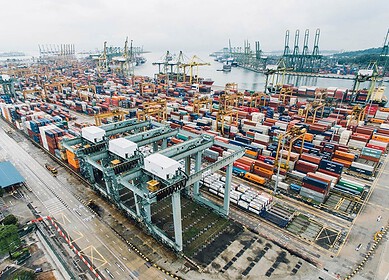Puglia’s agricultural sector witnesses challenges and opportunities

The agricultural sector in the Italian region of Puglia is positioned for a significant expansion and is forecasted to generate 100,000 green jobs within the next decade. However, this potential growth is currently overshadowed by logistical challenges and heightened production costs, primarily due to the precarious maritime trade conditions in the Red Sea, exacerbated by the Houthi-led attacks on ships. These disruptions, particularly impacting the import of water-soluble fertilizers from Asia, critical for fertigation processes, account for an alarming 15% of Italy’s total fertilizer imports, thus posing a serious threat to agricultural production costs, says Italian agricultural producer Coldiretti.
The situation equally endangers Puglia’s agricultural and agri-food exports, valued at over €500mn, mainly targeting African, Indian, and Eastern markets. The necessary rerouting to circumvent the troubled Suez Canal zone has resulted in escalated shipping costs and prolonged delivery times, jeopardizing perishable goods’ market segments and potentially leading to irrecoverable market losses.
According to Coldiretti, the forced diversion from traditional maritime routes has not only doubled the costs of maritime transport but also extended travel times by approximately two weeks. This underscores the urgency for a robust logistical infrastructure to preserve the competitiveness of regional agricultural and agri-food companies.
In light of these challenges, strategic actions are essential. Doubling the investments in Italy’s agricultural sector, as proposed in the new version of the PNRR (National Recovery and Resilience Plan) becomes imperative. With a substantial allocation exceeding €2 billion, this plan targets the agricultural supply chain, fisheries, and forestry. It aims to close the competitive gap with other nations and necessitates the full utilization of allocated resources to ensure the sector’s revitalization.
Addressing Italy’s structural delays, particularly in improving connectivity between the south and north and enhancing international links through sea and high-speed rail, is crucial. Developing a comprehensive network of hubs, encompassing ports, airports, trains, and cargo facilities, would leverage the PNRR’s potential to modernize national logistics, thereby mitigating annual losses in export opportunities.
Furthermore, fostering internationalization to aid companies in capturing new markets and fortifying existing ones is paramount. This entails bolstering the strategic role of institutions like Ice, along with leveraging embassies’ support, especially in combating the prevalence of ‘Italian sounding’ products that mimic genuine Italian goods.
In essence, the path to realizing Puglia’s agricultural sector’s potential is laden with both formidable challenges and transformative opportunities. Strategic investments, coupled with a focus on overcoming infrastructural and logistical hurdles, are key to navigating this path successfully.
Enjoyed this story?
Every Monday, our subscribers get their hands on a digest of the most trending agriculture news. You can join them too!














Discussion0 comments